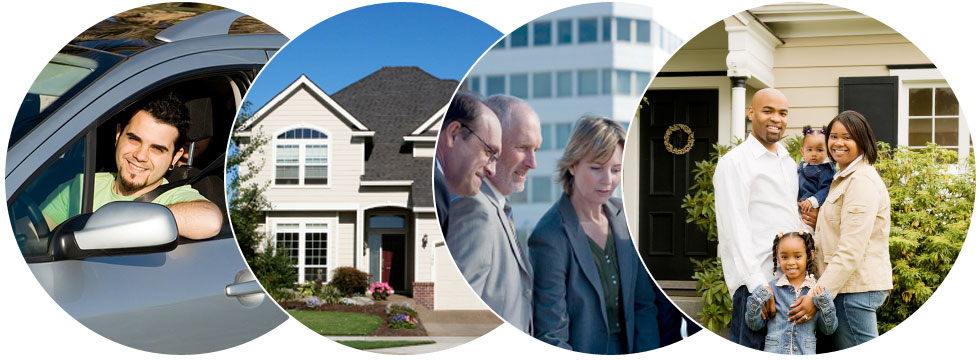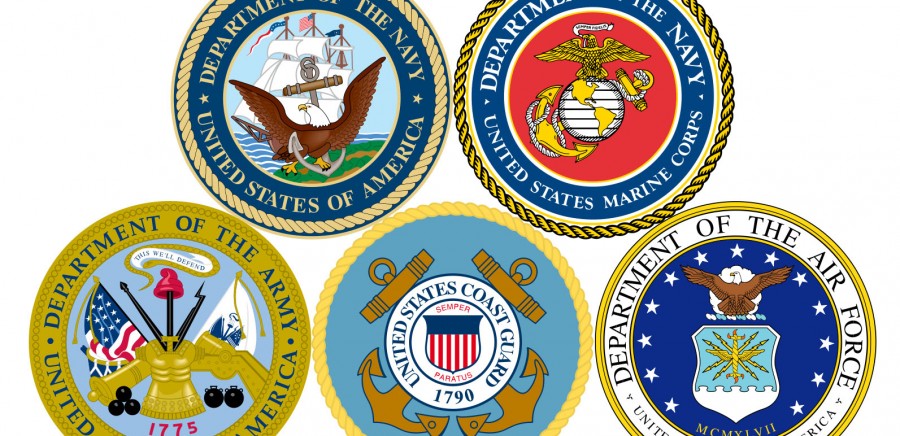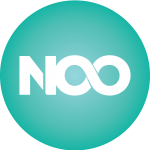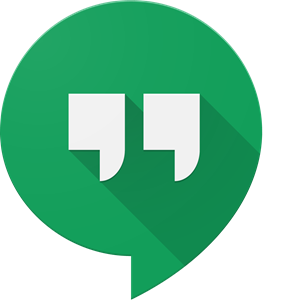
When buying a home anywhere in the U.S, most all mortgage lenders and banks work the same way. Having spent over 13 years in the mortgage industry I know what I am talking about. How mortgages work…Banks lend you (the borrower) money, then 9 times out of 10 they sell that loan (most loans) somewhere else; either an investment firm on Wall St, or to Fannie Mae, or Freddie Mac. Also known as GSEs (government “sponsored” entities). This way the banks don’t use up all their available cash lending it to you and others.
Then there is what’s called underwriting. This is very important. As defined by Wikipedia – is the process a lender uses to determine if the risk of offering a mortgage loan to a particular borrower under certain parameters is acceptable. Most of the risks and terms that underwriters [person(s) working for the lenders who make the decision] consider fall under the three C’s of underwriting: credit, capacity {i.e- income or ability to pay each month}
and collateral {value of the property the debt is secured against}.
Let me be very clear.. If you have bad credit, then 99% of the time you won’t be able to get a mortgage. PERIOD. So, you can save your time and others times if you know your credit is bad, and/or pull it for free online and check it before even looking for house. Most good real estate agents will not and should not show anyone homes until they know and have proof that the prospective buyer has been pre-approved by a mortgage professional first, prior to seeing homes. If you are serious about being a home owner and do have bad credit, there are things you can do to fix your credit to be able to purchase in the future. See Current Rates Below..
What You will need to even be considered:
- Great Credit
- Proof of Stable Job, and/or Income for at least 2 consecutive years
- Down Payment – as well as proof of where that down payment came from. This can be as little as 3 or 5 % of the purchase price assuming you have great credit scores and history. If you do not put down at least 20% you will have what is known as MI (mortgage insurance).
You will need to gather the following items to apply:
- Last two years W2 statements, or Tax Returns. {Every borrower}
- 2 Most recent pay check stubs
- Last 2 months most recent bank statements, and/or liquid asset statements (investment accounts). All of them if you have multiple.
These items and things listed above will determine whether or not you can purchase a home in the near future.

Here in the Charleston, SC area it is no mystery that we have some very expensive residential luxury real estate, and unless borrowers have the cash to pay for it, often times they need jumbo loans. There are countless beach and water front homes on Kiawah, Seabrook, Daniel, Sullivan’s Islands, Folly Beach and Mt Pleasant as well as homes downtown Charleston, Sc that exceed $3Million. A jumbo mortgage loan is one where the amount borrowed is above conventional conforming loan limits. This standard is set by the two government-sponsored enterprises Fannie Mae and Freddie Mac, and sets the limit on the maximum value of any individual mortgage they will purchase from a lender. Fannie Mae (FNMA) and Freddie Mac (FHLMC) are GSEs (government sponsored entities) that purchase the bulk of U.S. residential mortgages from banks and other lenders along with the FHA, allowing them to free up liquidity to lend more mortgages. When FNMA and FHLMC limits don’t cover the full loan amount, the loan is referred to as a “jumbo mortgage” in which private investors are in the marketplace to provide these necessary funds. The average interest rates on jumbo mortgages are typically higher than for conforming mortgages due to the inherent risk the investors are taking on riskier backed assets.
On October 1, 2011 the jumbo conforming limit of $729,750 in “high cost” areas was reduced to $625,500.As of 2010, the limit on a conforming loan in “general” areas was $417,000 for most of the US, apart from Alaska, Hawaii, Guam, and the U.S. Virgin Islands, where the limit was $625,500. The limit in “high cost” areas was $729,750 and $938,250, respectively.
Jumbo mortgage loans are a higher risk for lenders. This is because if a jumbo mortgage loan defaults, it may be harder to sell a luxury residence quickly for full price because less of the population can afford pricier homes. Luxury prices are more vulnerable to market highs and lows in some cases. That is one reason lenders prefer to have a higher down payment from jumbo loan seekers. Jumbo home prices can be more subjective and not as easily sold to a mainstream borrower, therefore many lenders may require two appraisals on a jumbo mortgage loan.
The interest rate charged on jumbo mortgage loans is generally higher than a loan that is conforming, due to the higher risk to the lender. It can be more expensive to refinance a jumbo loan due to the closing
costs, because taxes, insurance and other related costs are so much greater. Some lenders will offer the service of an extension and consolidation agreement, so that a jumbo refinancer will not have to pay for mortgage tax again on the same principal balance. In other cases, title insurance companies will offer up to a 50% discount, often required by law for those refinancing within 1 year to 10 years. The largest discount is for refinancing within one year.
Some consumers seeking a jumbo mortgage choose to seek advice from a competent professional familiar with jumbo mortgage loans.
OPTION 2 – Some investment brokers and/or large investment firms will lend money to their clients for jumbo luxury loans but secure it against liquid assets they manage for them. Often times these loan are lower in cost since their is collateral backing the loan to the borrower.

First the VA does NOT lend the money, but in fact the VA guarantees the loan to the bank that agrees to lend the money to the US service member veteran that has been approved. When buying a house the service member must contact a Charleston SC VA mortgage lender or bank that offers VA loans and apply. Make sure to find one that is experienced in doing VA loans as they are a little more detailed and stringent than conventional or FHA loans.
Also, getting a VA loan does not mean the rates are different than a conventional loan. Just because you qualify for a VA loan may not necessarily mean you should get a VA loan. VA Loans are for one reason and one reason only if you need 100% financing and/or your credit isn’t very good. If you have great credit and money to put down then 9 times out of 10 you’ll be better of getting a conventional conforming loan.
The guarantee VA provides to mortgage lenders allows them to provide you with more favorable terms, including:
- NO down payment 100% financing as long as the sales price doesn’t exceed the appraised value.
- NO private mortgage insurance premium requirement.
- VA rules limit the amount you can be charged for closing costs.
- Closing costs may be paid by the seller.
- The lender can’t charge you a penalty fee if you pay the loan off early.
- VA may be able to provide you some assistance if you run into difficulty making payments.
USDA Loans: A True 100% Home Loan
With the USDA loan program, no down payment is required and you are able to finance up to 102% of the property’s appraised value. With the elimination of the down payment assistance programs in late 2008, the USDA loan program is one of the only 100% loan programs available. However, there are income requirements, rules, and only certain communities, and areas are eligible for qualifying for a USDA loan.
Check Address Availability HERE
USDA Loans: No Upfront or Monthly Mortgage Insurance
With the USDA loan program, there is no upfront or monthly mortgage insurance required. With the FHA loan program, you have both up front mortgage insurance premium and monthly mortgage insurance as well.
With no mortgage insurance required, the USDA loan program can save you hundreds (possibly even thousands) of dollars each year that mortgage insurance would cost with a different type of loan.
USDA Loans: No Credit Score Required
For the USDA loan program, officially, there is no credit score required… but unofficially, the minimum credit score that you will need to get approved by an investor is 620. This is relatively recent and may change back to the official answer — but for now, you need a 620 mid FICO score to qualify for the USDA loan program.
USDA Loans: No Loan Limit
The USDA loan program will allow you to finance “as much as you can afford”. There is no official loan limit with the USDA loan program, but the amount of money that you can borrow depends on your ability to repay the loan.
USDA Loans: Seller Concessions Are Allowed
With the USDA loan program, you can get the seller to pay as many of your closing costs as you can. There are no limits on “seller concessions” so negotiate the best deal that you can! Many loan programs limit the amount of seller concessions that you can have, but the USDA loan program doesn’t put a limit on them.
The USDA loan program is a great option for people who are looking to buy a house with little or no money down. The only “bad” thing about the USDA loan program? The only thing that I can think of is that you will have to find a property that can qualify – and sometimes you may have to drive a ways to get there.

It’s misleading as the Federal Housing Administration loans are not loans at all, but a government agency that insures the loans so that lenders can offer mortgage assistance to people with:
Have fair or poor credit
Have a low down payment (must have at least 3.5%)
Have undergone bankruptcy
Have been foreclosed
In other words, the federal government insures loans (for FHA-approved lenders or banks) so that lenders reduce their risk of loss if they lend to borrowers who might default on their mortgage obligations. The FHA program has been in place since the 1930s to help stimulate the housing market by making loans accessible and affordable. In the beginning, FHA loans were designed to help military families who return from war (then came VA Loans), the elderly, handicapped, or lower-income families, but really, anyone can get an FHA loan – they are not just for first-time home buyers.
THERE IS NO SUCH THING AS FIRST TIME HOME BUYER LOAN
If you hear anything about these types of mortgages it’s simply a marketing ploy by mortgage companies to intrigue prospective first time buyers into calling them. Then telling you they have a “deal” for first time home buyers. The actual fact is that it is usually much harder for people who have never owned before, to get a mortgage for their first home. Simply because most people who have never owned a home haven’t established much credit history, savings, or job history to have purchased. Thus their credit profile as it were isn’t established enough to make a bank or mortgage lender, underwriter feel confident they know the commitment it takes to being a home owner.
With the exception of private money not lent by a traditional Federally regulated institution like a bank, credit union, or federally chartered mortgage lending company there are really only a few loans that exist on the market today. Unlike the days of 2000-2006 when there were many different kinds of loans with even more types of terms. What is out there now since the tightening of credit is: Conventional (conforming) loans, government backed loans (FHA, VA, & USDA), and very occasionally state backed mortgage loans. At one point the state of S.C. did have sort of a first time home buyer mortgageloan for what they called “home town heros”. These were specially priced loans with looser requirements, and grant money assistance that was created to give a helping hand to those who served the public like: fire fighters, police officers, teachers, EMS, EMTs, & public safety officers etc. However, that loan is no longer being offered as of now, and there is no word if it will return.
Appropriately named, upfront mortgage insurance is monthly premium payment, which means borrowers will pay a premium of 1.00% of the home loan, regardless of their credit score. Example: $300,000 loan x 1.00% = $3,000. This sum can be paid upfront at closing as part of the settlement charges or can be rolled into the mortgage.
The most common is called an annual premium, this is actually a monthly charge that will be figured into your mortgage payment and is a percentage calculated based on that LTV (loan to value) or basically how much you borrowed in relation to how much you put down. This percentage is usually fixed, and set by federal banking regulators based on the economic conditions at the time they set the rates.
For example: If the LTV is less than or equal to 95 percent, a borrower will pay 0.50%. For LTVs above 95 percent, annual premiums will be 0.90%. Example (for LTV less than 95%): $300,000 loan x 0.90 = $2,700. Then, divide $2,700 by 12 months = $225. Your monthly premium is $225 per month.
There are two main types of second homes: vacation homes, and investment homes. The definition of a true “second home” varies from lender to lender, but typically, to be defined as a vacation home the house must be at least 50 miles away from your primary home. Usually, the property must be capable of year round occupancy, and it must be occupied for a portion of the year. Investment homes are usually defined as property that the owner does not intend to occupy, or they can be vacation home that is too close to your first home. Here in Charleston South Carolina one can gather that there are a lot of second homes because of us being a coastal beach town, and a historic luxury vacation destination as well. In many instances there are 3rd and 4th homes that people own here, however these wouldn’t qualify for standard mortgages.
As far as mortgage rates go, second homes will always have a higher rate than your first home. Properties not considered a primary residence are assigned much higher rates because the bank is taking a greater risk, and therefore, the risk is represented in the rate. Thus, it is harder and more expensive to obtain a loan for your second home, and you should expect to put down at least 10 percent, likely more, and to pay a higher interest rate that is a quarter (.25%) to half (.50%) of a percentage higher or possibly more if the property you want to purchase is an attached home such as: condo, or villa.
Charleston SC Mortgages – Free Mortgage Calculator – Mortgage Lenders Charleston SC – Current Mortgage Rates South Carolina





You must be logged in to post a comment.